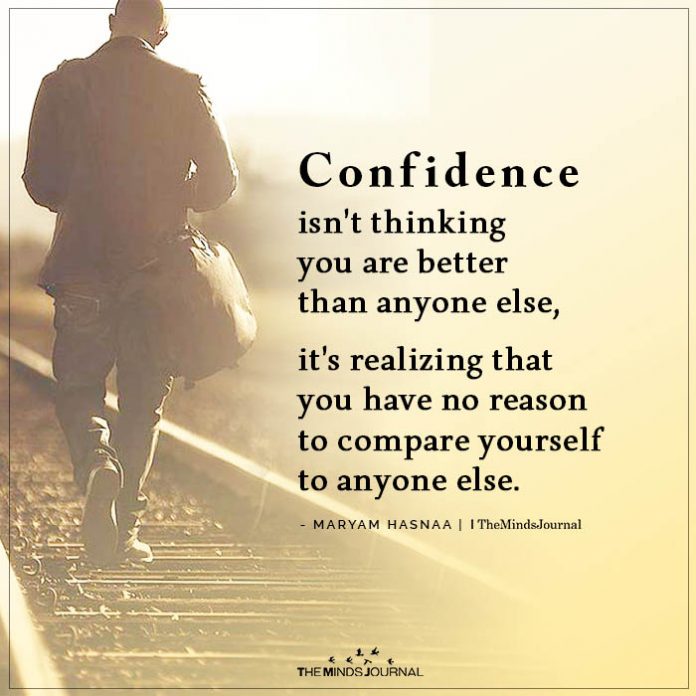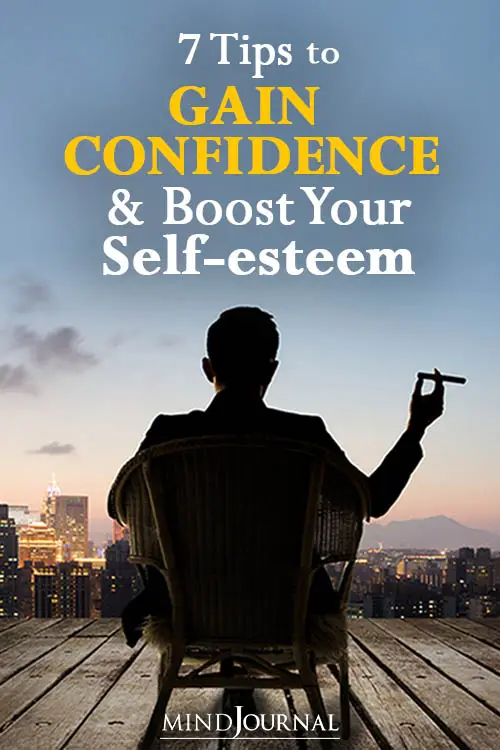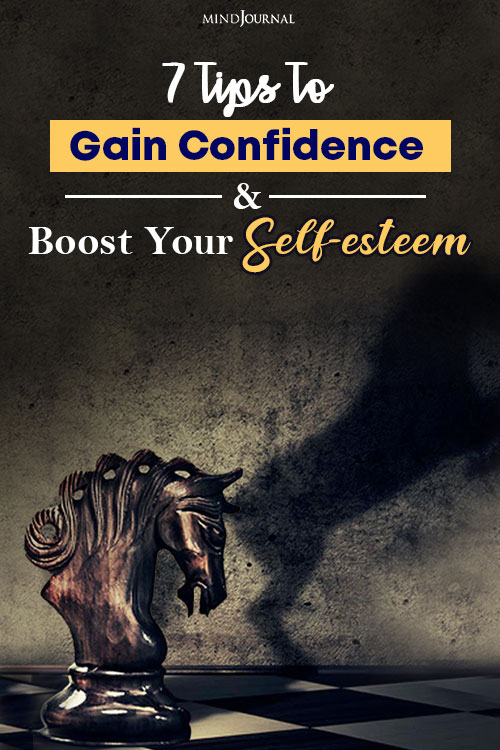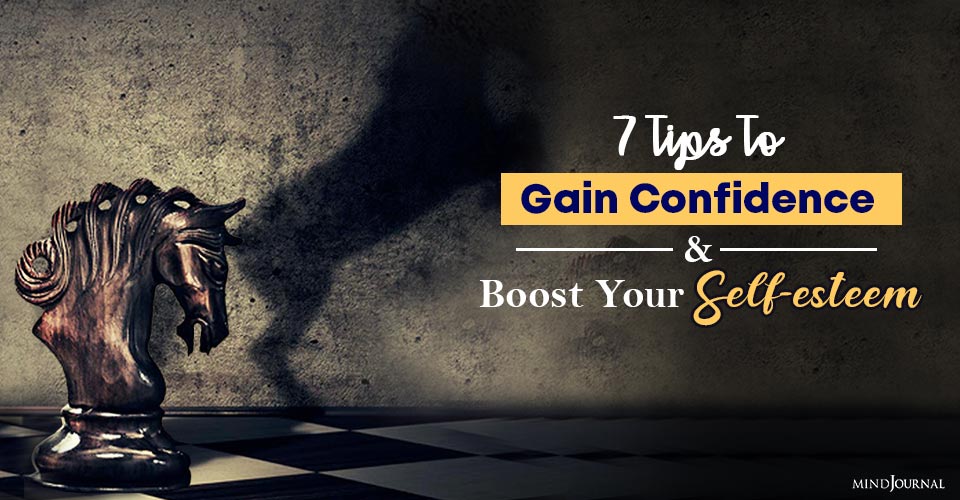Although quite similar, confidence and self-esteem are actually different. Self-confidence is how you project yourself to others and self-esteem is how you feel about yourself. You can have high self-esteem and be less confident, but if you want to boost your self-esteem, you need to gain self-confidence.
Have you ever been making great progress only to get stuck and find your confidence disappears? Or perhaps you’ve achieved a big success that’s been quickly followed by a crash of confidence and self-esteem? Or maybe your confidence just evaporates away slowly over time?
Regardless of how robust we might appear on the outside, we are all vulnerable. We can be especially vulnerable when there is uncertainty.
Our confidence can easily be knocked by a passing comment from a friend or colleague. Or when we’re working hard to deliver a project quickly or make a change happen and are faced with blockers and negativity. I’ve also known confidence to disappear for no apparent reason. That’s why knowing practical tips for how to gain confidence is a crucial skill.
Then there’s the critical voice in your head that tells you ‘you’re not good enough’ or ‘you’re going to get found out’. The little voice nags away, becomes louder, more insistent, and more toxic until you just want to stick firmly with what you know, and stop pushing forward and getting things done fast because it feels safer to stand still.
Only when you stand still does the nagging voice stop chipping away at your confidence and self-esteem.

It turns out that the little nagging voice is a thing. It’s called Imposter Syndrome. It’s a term first coined in 1978 by psychologists, Pauline Clance, and Suzanne Imes. It describes the psychological phenomenon which is characterized by intense feelings of not being good enough, negativity, being a fraud, and that you are going to get found out – even though all the evidence suggests otherwise.
Gaining your confidence back once the little nagging voice takes hold is hard. I see it like this;
Every day, you have a bucket of confidence. Every time you get push back from someone, every time you get a negative comment, or even a disparaging look from the right person, a little bit of your confidence leaks away.
To gain your confidence and increase your self-esteem, you have to put habits in place to keep your confidence bucket full. Every day. I don’t believe that some people have confidence and others don’t. It’s simply that successful people are more accomplished at managing their feelings of self-doubt and silencing that little internal voice before it has a chance to jeopardize them.
Related: Self-Awareness vs. Self-Consciousness: The Confidence Perspective
‘If you hear a voice within you say ‘you cannot paint,’ then by all means paint, and that voice will be silenced.’ Vincent Van Gogh
Gaining confidence is about keeping your bucket topped up on a daily basis.
Here are 7 tips to gain confidence and really boost your self-esteem:
1. Log your achievements
Get yourself a physical notebook or create an online file and log your achievements. Log them all, especially the small ones because they add up.
Keep the good feedback you receive from other people; a thank you from a friend, the well done – good job email from a manager, or the time your colleagues went the extra mile for you.
Write them down. Writing them down helps you to acknowledge them, which makes you feel good.
In addition, seeing your achievements written down, helps you realize how far you’ve come, the positive impact you have every day, and how much you’ve achieved overall. Instead of your ‘to do’ list – it’s your ‘I did it!’ or ‘ta-da!’ list.
Related: 15 Greatest Speeches That Changed The Course Of History
2. Call out your Imposter Syndrome
It’s actually rather common. 70% of people have had feelings of being inadequate and getting found out at one time or another.
When that little nagging voice tells you that you’re not good enough and anything good that happens to you is luck – call it out. For example, acknowledge that it’s happening and disconnect that annoying voice from the real you, and tell it to shut up.
Your task is to find your own way to change the negative story that your inner critic is telling you. Look for evidence to prove what your inner critic is saying is wrong. For example, if you think that you’re a failure, ask yourself, ‘What evidence is there to support the thought that I’m a failure?’ and ‘What evidence is there that doesn’t support the thought that I’m a failure?’
3. Become a mentor
Being a mentor isn’t just for very senior and experienced people, there’s always someone that you can help.
Helping someone else can be a very rewarding experience. You’ll learn a lot and you’ll also realize how much value you can bring to others which in turn can help you to gain confidence.
Many industries have some form of mentor program or scheme. If yours doesn’t, why not just go for it and put yourself out there? For example, you could post on your intranet or on LinkedIn that you are looking to mentor someone.
4. Accept compliments
If someone says to you, ‘great job,’ or ‘you look wonderful’ or ‘well done excellent event,’ do you say ‘thank you’ and feel good, or do you shy away and give someone else credit?
If you shy away from compliments, then stop. Own it and feel good about it. Next time someone pays you a compliment, smile, say thank you, and own the good feeling that goes with that acceptance. (And note it in your achievements log!)
Related: 10 Habits That Cause Low Self Esteem And Depression
5. Look after yourself
Looking after yourself helps you gain confidence. It’s fundamental to success. Make sure you get more than enough sleep, do regular exercise, and eat healthy food. Make it a habit.
If you feel good, you gain confidence, which inspires you to look after yourself and you create a positive cycle.
6. Be kind and generous
Being kind and generous to others makes us feel good, and feeling good helps us to gain confidence.
Linked to this, focus on being grateful for what you have and what has gone well that day. I’d suggest that you start by writing down the things you are grateful for every day and make a deliberate effort to be kind and generous to others at every opportunity. And again, over time this becomes a habit.
Related: The Animal You Spot First Reveals The Kind of Person You Are: Personality Test
7. Be prepared
The more you practice, the more successful you get. Funny isn’t it?
Gaining confidence is borne out of practice. Be prepared, practice the presentation, read the meeting minutes, research the person you are meeting.
In his book Outliers, Malcolm Gladwell talks about the practice required to be the master of your skill being 10,000 hours. So start putting the hours in and you will gain confidence.
‘Inaction breeds doubt and fear. Action breeds confidence and courage. If you want to conquer fear, do not sit home and think about it. Go out and get busy.’ Dale Carnegie
And finally, conquer the knowing-doing gap. You’ve now got a stack of practical tactics to gain confidence and boost your self-esteem. Every action you take will add up but it starts with you.
If you want to gain success, take action today.
If your confidence could do with a boost – check out my training webinar and workbook that gives you more tips and tools for you to work on your own confidence. For more information and buy the training go here.
Written by: Lucy Gower
Originally appeared on: Lucidity
Republished with permission.










Leave a Reply
You must be logged in to post a comment.